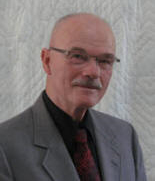November 16, 2010
Went to the Pegasus conference last week. Attendees were deep into systems thinking, methods of organizational change, and environmental issues. Most seemed to underestimate the challenges facing industrial societies, but not the depth of human emotion associated with overwhelming change. Their enthusiasm to develop adaptable, learning organizations is crucial dealing with the big hindrance in Compression – our own slowness to change.
Compression Thinking is a form of systems thinking, intense and broad in scope to bridge gaps between global issues and local action – long-term visions to detailed first steps. We lack a standard language to describe Compression Thinking. Old terms tend to evoke prior habits. On the Compression site you can download a lexicon of terms as used in Compression and on this web page. It will be updated over time. Hopefully a more standard terminology will gel. (One advantage of describing lean and quality using Japanese terms has been that English speakers must ponder what they mean.)
More environmental sustainability movements exist than one can track. Many focus on one aspect of our problems. Some at the Pegasus meeting distinguished “authentic” ones from those merely surfing for business opportunities. Doc’s elevator speech had to differentiate Compression from this diverse field. It boiled down to four points:
- Sustainability is only one view of the challenges confronting industrial societies.
- Set tough targets to reduce resource use, with peg points to track progress.
- This seems to complicate operations already swamped in man-made complexity.
- Develop fast learning (vigorous learning enterprises) to cope with this.
The elevator speech, much less Compression Thinking, can’t be held in mind at once. It can only be grasped by persistence, so no nifty symbol or brand image can yet characterize it. Most of us do think this way some of the time. If we practice learning to do it better, we can offset the Tower of Babel effect, delusion that our perspective of that Tower describes the whole thing.
In this, Compression is like lean, only more so. Almost everyone first learns it as techniques. Acquiring the thinking patterns and the behavior for it takes more patience than frantic souls possess. Even the persistent will never “know it all.” Countermeasures for one situation turn up many more to address.
Doc’s travels, plus feedback from Compression Thinkers, led him to conclude that he must step up mentoring and coaching to seed a small army of mentors and coaches able to propagate Compression Thinking (rather than the use of resources). Such different thinking can’t be fully conveyed by news bits, social media memes, or Twitter bombs.

